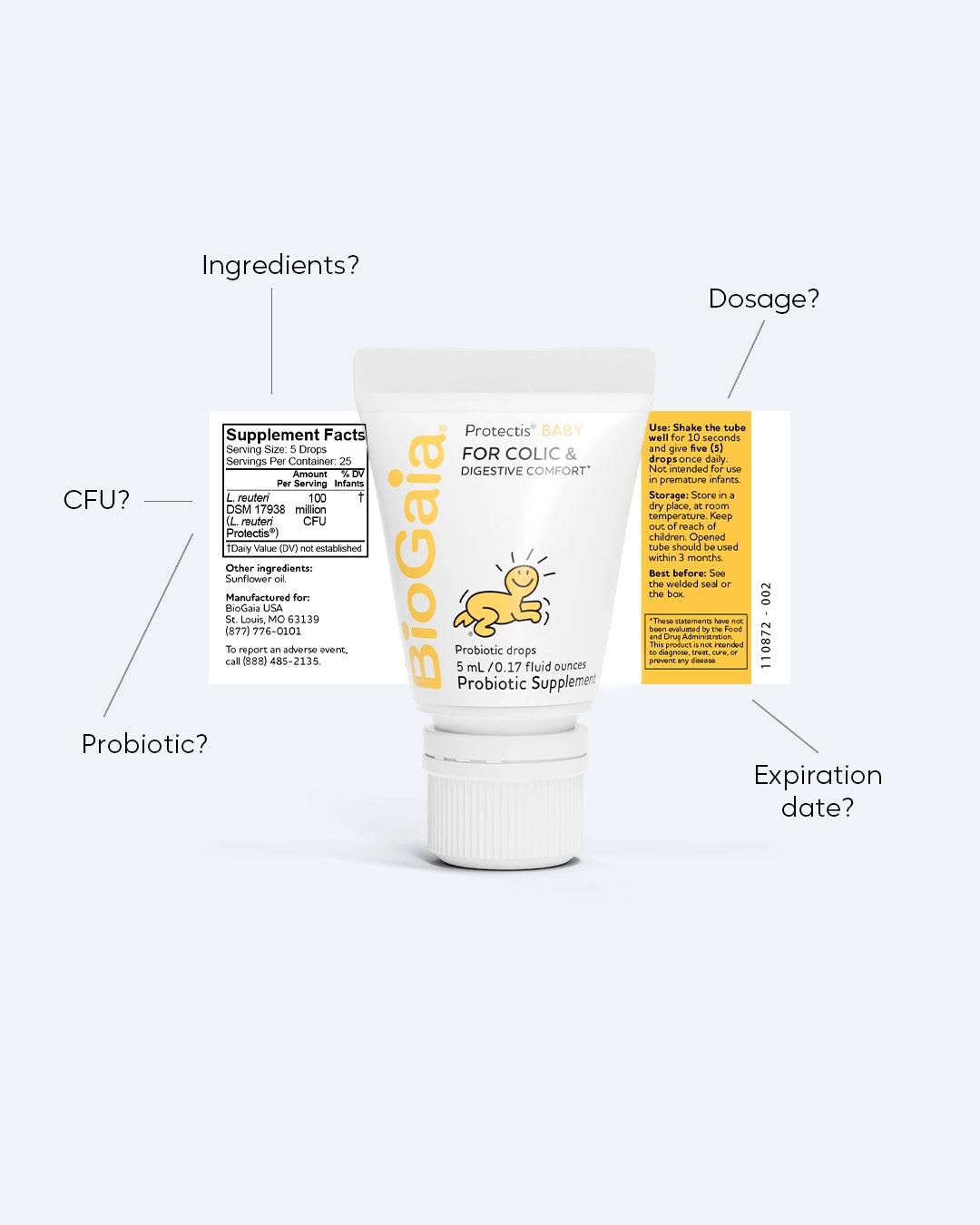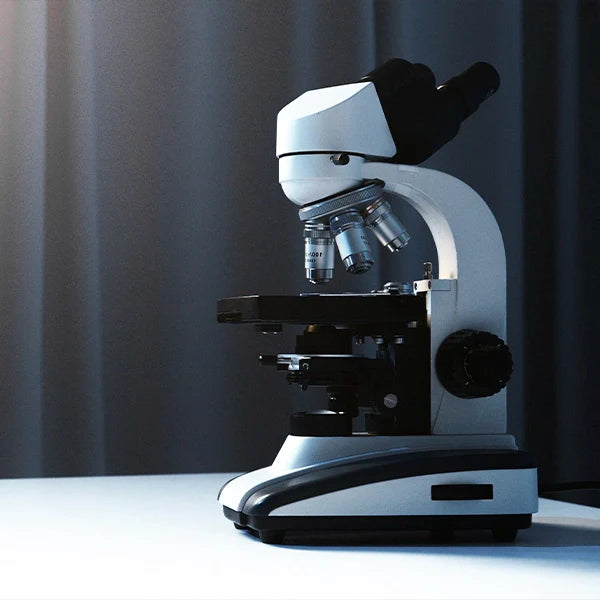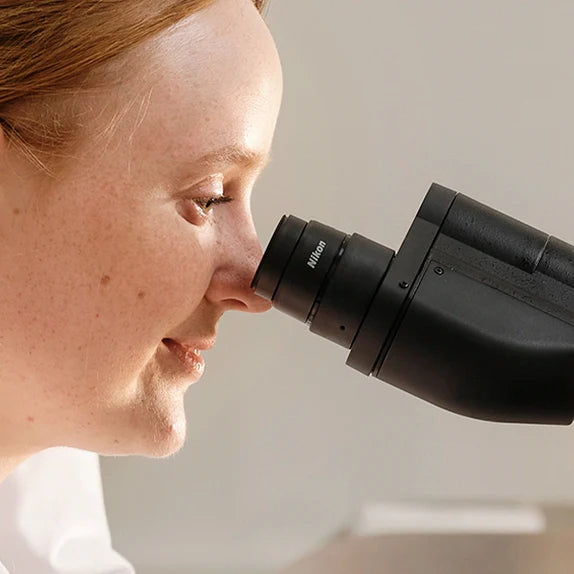What are probiotics?
Your essential guide to our gut heroes


What are probiotics?
Probiotics are live microorganisms (bacteria and yeasts) that have beneficial effects on, or inside your body. They’re often described as "good" or "friendly" bacteria.
Trillions of these tiny microorganisms already exist in your body, along with numerous others. By consuming probiotic supplements, you’re increasing the existing populations of friendly microbes.
These invisible heroes help support important bodily functions and your overall health.* They also help to crowd out the potentially harmful types of microbes we carry, promoting a balanced microbiota.*
Probiotics can improve digestion, enhance nutrient absorption, and support a strong immune system.*
Many probiotics are oral supplements designed to be ingested into your gastrointestinal tract (your gut/stomach). Others are topical products that you can apply to your skin.

What do probiotics do?
Probiotics increase the population of beneficial microbes (bacteria) that already live within your gut and elsewhere.
Research suggests that probiotics have been shown to potentially:
- Support digestive health by producing the specific enzymes needed in the digestion of food and aiding the breakdown of foods substances.*
- Protect against harmful bacteria and promote a balanced microbiota by crowding out “bad” strains of bacteria.*
- Support immune system function by stimulating the body’s natural defenses, and by lining the intestines with a protective layer of friendly bacteria.*
As two-thirds of the body's immune system is managed in the gut, probiotics are increasingly becoming the focus of vigorous scientific research.
What is Dysbiosis? The impact of a modern lifestyle on gut health
Dysbiosis is an imbalance of the bacteria in your gut and usually occurs due to the impact of modern life.
Under "balanced" conditions, the good bacteria in the gut outnumber the bad ones. However, the effects of modern living (stress, antibiotic use, low-fiber diets) make it increasingly difficult to maintain this balance.
How do probiotics work?
From the minute you swallow a probiotic supplement an amazing journey begins. As they travel through your digestive system, the probiotics “wake up” in your gut, ready to work their magic.
These friendly probiotics multiply, forming a team of millions of tiny invisible helpers that work to balance the good and bad bacteria in your gut, which is essential for digestion and overall health.
Daily intake of probiotics is important because these tiny helpers don’t stay forever; they are naturally expelled after a week or two.
Surviving the journey to your gut
For probiotics to work effectively, they must first survive your stomach’s harsh, acidic environment. All BioGaia probiotics are proven to do just that.
Our L. reuteri bacterium is one of the few probiotics in the world that has been clinically proven to settle and thrive in all areas of your digestive system, like the stomach and small intestine. This means they can live and multiply right where they provide the most benefits.*
Prebiotics and Probiotics – what's the difference?
Both prebiotics and probiotics support your gut health, but they play different roles.
Prebiotics are commonly fibers that feed the good bacteria in your gut, helping them to grow and thrive. Think of them as food for your beneficial gut bacteria.
Probiotics, on the other hand, are live bacteria that you can consume through supplements or in small amounts in certain foods, like yogurt and sauerkraut. They add more of these good bacteria to your digestive system.
Together, they help keep your digestive system balanced and healthy.*

Why strain matters: The key to choosing quality probiotics
Bacteria are classified by genus, species, and strain. The strain is the most important information to consider.* A strain is a specific type of bacteria, in the same way that a Labrador is a specific type of dog.
Different strains of probiotics can have different effects. For example, one strain may help with digestion while another may help to boost the immune system.
Different probiotic companies make probiotics from different strains. Unlike BioGaia, some probiotic brands use strains that lack significant research or do not all share details of these strains on their product packaging.
Without knowing the strain name, you don't know exactly what you are getting. One lactobacillus supplement is not equal to another lactobacillus supplement. Strain information is what nutritionists, doctors and other healthcare professionals look for when recommending probiotics.
We are extremely proud to use one of the world’s most researched strains in all our products, our patented Limosilactobacillus reuteri (formerly Lactobacillus reuteri) DSM 17938. We could talk all day about our amazing L. retueri strains!
Learn more about L. reuteri

How to choose the best probiotic for you?
Selecting the right probiotic can be a bit overwhelming with so many options available. Here are some tips to help you make an informed choice:
Identify your needs: Different probiotics can support different health areas, so choose a probiotic that matches your specific needs.
Check the strain: Look for probiotics that are labeled down to a strain level, and that the strain is well researched (L. reuteri DSM 17938).
Backed by science: Check that the strain has been tested in clinical studies on humans (not just in vitro) to verify its safety and effectiveness. For multi-strain products, each strain should be defined and supported by clinical research.
CFU Count: CFU stands for Colony Forming Units, indicating the number of live bacteria in each dose. A higher CFU count or ‘multi-strain’ products aren’t necessarily better; it depends on the science.
Expiration Date: Probiotics are living organisms, so they lose potency over time. Reconsider products that only state CFU “at time of manufacture.” This labeling does not account for the decline of CFU during storage, which can affect the product’s effectiveness. So check the CFU count is ‘at the end of shelf-life', not the date of manufacture.
Probiotic Checklist: How to choose a probiotic
BioGaia welcomes the International Scientific Association for Probiotics and Prebiotics (ISAPP) consumer guidelines for making smart probiotic choices.
| Checklist | How probiotics by BioGaia comply |
|---|---|
| It’s backed by science | ✓ Products with L. reuteri are among the most scientifically well-documented probiotics in the world. |
| It provides an effective dose | ✓ Through clinical trials on over 22, 000 individuals of varying ages, effective dosing has been verified and varies per product.* |
| It provides the benefit I’m seeking | ✓ All BioGaia probiotics are clinically proven to support gut, oral or immune system maintenance.* |
| It’s safe for me | ✓ BioGaia strains all have Qualified Presumption of Safety (QPS) status and have undergone rigorous safety assessment. |
| It’s labelled properly: Names of microbe CFU Suggested dose or serving size Proper storage conditions Company contact information | ✓ Our labeling always: specifies genus, species and strain, shows CFU content at end of shelf-life, specifies recommended dose, specifies storage conditions on the packaging and contact information is visible on all labels. |
DOES MORE MEAN BETTER? Not necessarily. A greater number of colony forming units (CFU) does not always equate to a better product. The best-known dose is the one that has been tested in humans and shown to provide positive outcomes. These levels can range from 100 million to over a trillion CFU per day depending on the strain.
ARE A GREATER NUMBER OF STRAINS BETTER? It depends on the science. Some studies support the effect of a single-strain probiotic product, while some studies show that specific blends of probiotics strains have a positive outcome. Simply having many strains is not a guarantee of a more beneficial product.
DOES STRAIN SPECIFICITY MATTER? Scientists agree that not all probiotics are the same. Choose a strain or strain blend backed by science supporting the effect you are looking for.
DO PROBIOTICS HAVE TO ALTER MY MICROBIOTA TO BE EFFECTIVE? Probiotics typically do not take up residence in your gut and may not evoke any detectable change in the microbes that are normally present. As they pass through the gut, probiotics (and the substances they produce) interact with immune cells, our gut cells, dietary components in the gut and the microbes that live in our gut, and that’s how they exert their benefits.
ARE ALL FERMENTED FOODS PROBIOTIC FOODS? Fermented foods are made by live cultures that transform the food. Some are further processed (such as pasteurization), which can kill the cultures. Even if live microbes remain, they may not provide proven benefits. Probiotics, on the other hand, are live microbes proven to be beneficial in adequate amounts.
Fermented foods can be healthy, but they don't always meet the criteria to be called probiotics unless they contain a studied probiotic at a beneficial dose.
**All information according to ISAAP.
How to read a probiotic label

RECOMMENDED USE: Tells you the intent of the product and what you can expect.
DOSAGE/ USAGE/ SERVING SIZE: The amount that needs to be consumed to obtain the desired effect.
CFU (Colony Forming Units): The number of viable bacteria in the product. Avoid products stating CFU “At time of manufacture” - such labelling does not account for the decline of CFU during storage. Look for labels with CFU stated at the ‘end of shelf life’.
STORAGE INFORMATION: How to store the product to ensure product quality and safety.
COMPANY NAME AND CONTACT INFORMATION: Consumers can contact BioGaia with questions or to get more information.
GENUS, SPECIES, AND STRAIN OF THE BACTERIA: You need all 3 to know what probiotic you are getting. Strain specificity is important as different strains within the same species can have different effects. Choose products that identify down to the strain level.
EXPIRATION DATE: This will tell you how long the probiotic will contain adequate levels of live probiotics to have the desired effect. Probiotics are living microorganisms, and their numbers can drop off during storage.
Learn more about probiotics
Sources
Effects of Probiotics, Prebiotics, and Synbiotics on Human Health - PMC (nih.gov)
Markowiak P and Śliżewska K (2017) Effects of Probiotics, Prebiotics, and Synbiotics on Human Health. Nutrients, 9(9): 1021
Effects of Probiotics, Prebiotics, and Synbiotics on Human Health - PMC (nih.gov)
The benefits of probiotics bacteria - Harvard Health
Probiotics - NHS (nhs.uk)
Probiotic-Checklist-Infographic.pdf (isappscience.org)
Probiotic_labeling-_rev1029-1.pdf (isappscience.org)
Dispelling-Probiotic-Myths.pdf (isappscience.org)
This information is intended for educational purposes only and should not be considered medical advice. The article does not imply that any substance mentioned is intended for the diagnosis, cure, treatment, or prevention of any disease.


